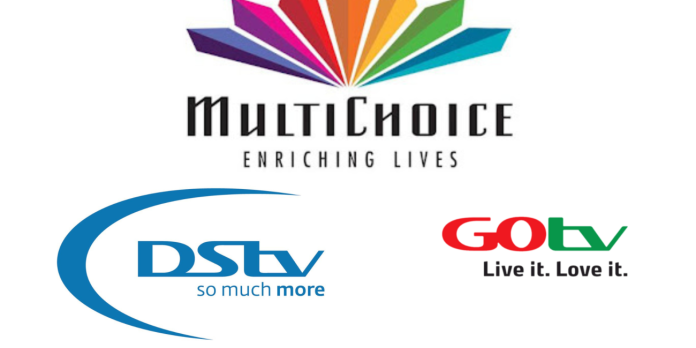The pay-TV industry in Nigeria has seen a notable shift as approximately 243,000 subscribers abandoned DStv and GOtv between April and September 2024, according to Multichoice, the parent company of both services. This decline is a direct result of Nigeria’s worsening macroeconomic conditions, which have put a strain on consumer spending, making it difficult for many to maintain subscriptions to premium entertainment services.
Decline in Subscriber Numbers Amid Economic Struggles
The drop in subscribers has been attributed to various factors, with inflation being one of the major drivers. In Nigeria, inflation rates have soared to 32.7%, making basic goods and services increasingly unaffordable for a large portion of the population. As a result, discretionary spending on entertainment, including pay-TV services like DStv and GOtv, has been significantly reduced.
In the financial statement released by Multichoice on November 12, 2024, the company revealed that the total number of lost subscribers in Africa reached over 566,000. This figure includes losses not only from Nigeria but also from Zambia, where severe power outages—sometimes lasting up to 23 hours a day—contributed to the decline. In total, Nigeria and Zambia were responsible for 298,000 of the lost subscribers, further highlighting the challenges faced by the pay-TV sector in these regions.
Global Context and Wider Impact on Multichoice
The subscriber loss is not confined to Nigeria alone. South Africa, the home country of Multichoice, also saw a drop of 180,000 subscribers, contributing to a global decline of 1.8 million active subscribers for the company. This reduction in subscriber base has been linked to the broader macroeconomic conditions affecting consumer spending across various regions. Despite these challenges, Multichoice has managed to maintain its revenue growth.
The company reported a four percent year-on-year increase in revenue, reaching 25.4 billion South African rand on an organic basis. This growth is attributed to strategic measures, including disciplined pricing strategies to keep up with inflation and the introduction of new products to the market. However, Multichoice also faced a 10% drop in revenue on a reported basis, driven by foreign exchange pressures in Africa and a stronger South African rand against the US dollar.
Impact of Price Hikes and Increased Competition
One factor that may have contributed to the loss of subscribers is the series of price hikes implemented by Multichoice on its DStv and GOtv subscription plans throughout the year. These price increases, which were implemented to offset inflationary pressures, have likely made it even more difficult for Nigerians to afford the services. While Multichoice has tried to ease the financial burden by reducing the prices of its decoders, many subscribers appear to have reached a breaking point in terms of their ability to pay for the service.
In addition to rising prices, the market dynamics have also shifted due to new competition. A new player in the Nigerian pay-TV space, Luft Pay TV, has entered the market, promising to offer tailored content that meets the needs of Nigerian consumers. The company’s launch, led by CEO Bright Echefu, is expected to increase competition for established services like DStv, GOtv, and StarTimes. Luft Pay TV has committed to delivering top-notch entertainment at affordable prices, which could prove to be an attractive option for many Nigerians who have become disillusioned with rising costs from the traditional pay-TV providers.
The Future of the Nigerian Pay-TV Market
The entry of Luft Pay TV, coupled with the ongoing economic challenges faced by Nigerian consumers, will likely lead to further shifts in the pay-TV market. With inflation continuing to impact household budgets, more Nigerians may begin to explore alternative, more affordable entertainment options. The rise of online streaming platforms, like Netflix and YouTube, also poses a threat to traditional pay-TV services, as consumers opt for digital solutions that offer flexibility and lower subscription costs.
In response to these challenges, DStv and GOtv may need to reconsider their pricing strategies and explore ways to offer more value to customers in order to retain their subscriber base. This could involve offering more localized content, exploring flexible payment options, and improving the overall customer experience to compete with emerging alternatives like Luft Pay TV.
The pay-TV industry in Nigeria is at a crossroads, with increasing pressure from economic conditions and new competitors entering the market. Multichoice’s recent report highlights the struggles faced by DStv and GOtv, as 243,000 Nigerian subscribers disconnected due to rising costs. As the landscape continues to evolve, the success of existing players will depend on their ability to adapt to changing consumer demands and offer value in a highly competitive market. With new entrants like Luft Pay TV promising better customer-tailored services, the future of pay-TV in Nigeria may look very different from the status quo
Join Television Nigerian Whatsapp Now
Join Television Nigerian Facebook Now
Join Television Nigerian Twitter Now
Join Television Nigerian YouTUbe Now





